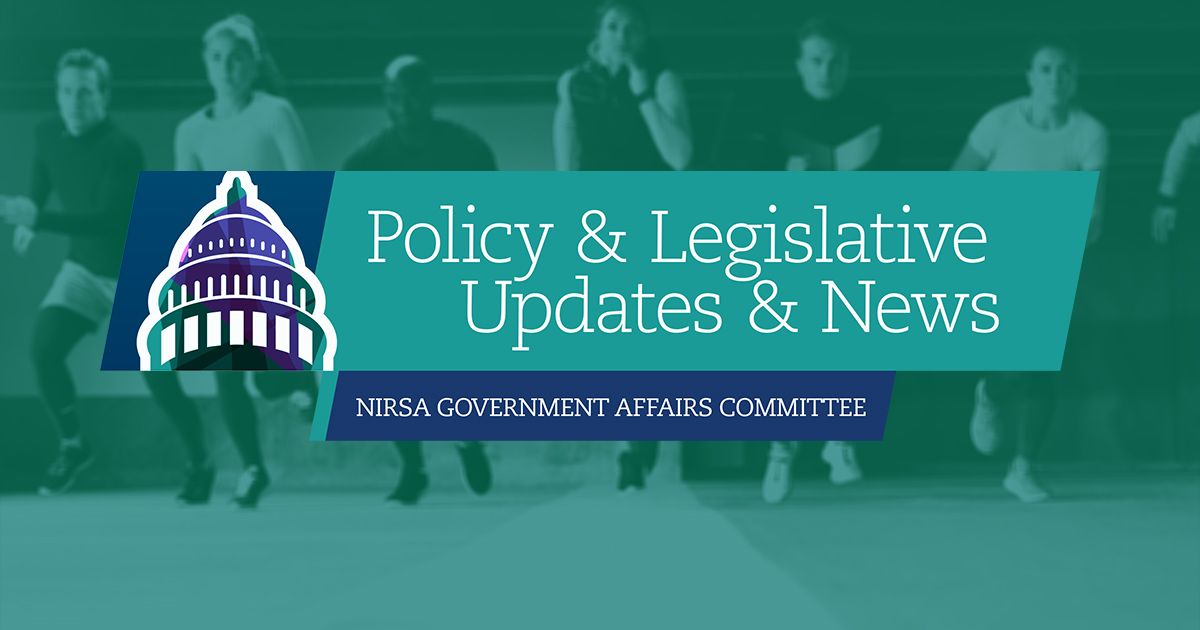Campus recreation professionals know sustainability, one of NIRSA’s six strategic values, has significant importance within our profession and, more broadly, higher education. Embracing the three pillars of sustainability—social, environmental, and economic—enables professionals to fully support and encourage healthy people and healthy communities.
Three of NIRSA’s Sustainability Ambassadors—Rex Pringle, University of Tennessee; Linda Clauss, California State University – East Bay; and Janice DeMonsi, Santa Clara University—were recently alerted, through Higher Education Associations Sustainability Consortium (HEASC), to two pending legislative actions that could impact campus recreation. They could come up as early as this week in Congress during the actions on the continuing resolution.
Energy Star
Energy Star is an international standard for designating energy efficient consumer products. It was created in 1992 by the US Environmental Protection Agency (EPA) and Department of Energy. Since then many countries, including Canada, have adopted the voluntary program that places the widely recognized blue Energy Star logo on products using less energy than required by federal standards.
According to its most recent Annual Report, Energy Star has saved $362 billion dollars on utility bills and reduced greenhouse gases by 2.5 billion tons since it began.
The current administration has proposed cutting all funding to the Energy Star Program as part of its proposed 31% cut to the EPA budget.
According to HEASC, without Energy Star, “colleges and universities will face increased energy costs and/or additional staff time to procure products… Many institutions of all types use this third-party evaluation certification in their procurements to ensure products will deliver the optimum energy efficiency. Without the Energy Star designation, institutions will need to spend staff time to evaluate product specifications, or risk buying energy inefficient products.”
A bipartisan letter to the White House is being finalized on April 26. However, you can make your voice heard by contacting your representatives and senators to let them know keeping the Energy Star program will reduce cost on campuses throughout the country. Furthermore, Alliance to Save Energy also has a letter the public can sign to voice support for this program.
EPA’s comment period
The EPA, in accordance with Executive Order 13777 (“Enforcing the Regulatory Reform Agenda”) is seeking comments on which regulations might be appropriate for repeal, replacement, or modification. Comments must be received on or before May 15.
All comments submitted should include the EPA docket number EPA-HQ-OA-2017-0190; the EPA has also put together a list of “tips for effective comments.” You can also contact your representatives and senators with these comments. Comments submitted to date can be read online—many are submitted anonymously.
A reminder to NIRSA members
Many colleges and universities have strict rules for their employees around lobbying (including contacting members of Congress to express a viewpoint on legislation), including the use of institutional email addresses or phone numbers. Unless authorized otherwise, it is recommended members express their views as private citizens by using personal email addresses and/or phone numbers and stating their views as their own.
- For more information, please contact NIRSA Director of Advocacy and Strategic Partnerships Erin O’Sullivan.
Erin O'Sullivan is currently the Senior Director of Initiatives and Impact at NIRSA.








